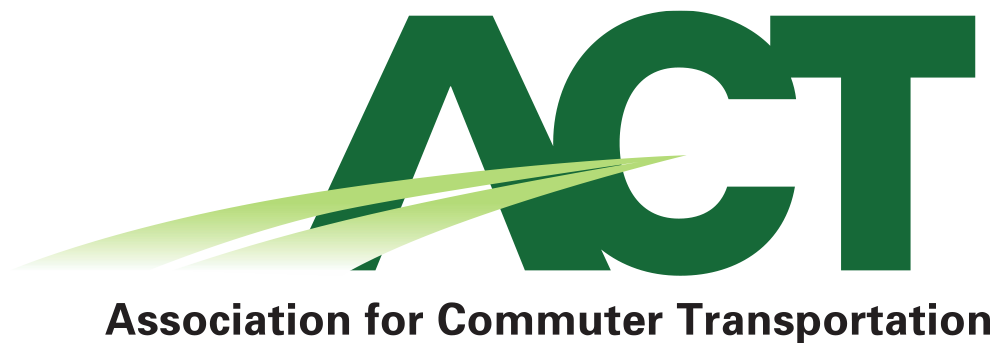Land Acknowledgements
An archive for past acknowledgements at ACT events
What is a land acknowledgement?
A Land Acknowledgement is a formal statement that recognizes and respects the indigenous peoples as traditional stewards of this land, the enduring relationship that exists between indigenous peoples and their traditional lands.
To recognize the land is an expression of gratitude and appreciation to those whose homelands you reside on and a recognition of the original people who have been living and working on the land from time immemorial. It is important to realize the longstanding history that has brought you to reside on the lands and to seek to appreciate your place within that history. Land acknowledgements do not exist in past tense or outside historical context. The use of a land acknowledgement statement also encourages individuals to think about what it means to occupy space on indigenous lands.
There are different methods to acknowledge the land, such as a verbal acknowledgement by a host of an event or meeting, or a written statement. Land Acknowledgements can occur at the opening of an event (e.g., sports, graduation performance), first day of class, before a special meeting or event, webinars etc.
Read below to view land acknowledgements from previous ACT events.
Charlotte, North Carolina
ACT's 2024 TDM Forum
November 2024
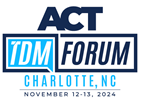
Tanaké! (tah-NAH-ke) (means "hello" in the language of the Catawba Indians)
ACT's DE&I Committee would like to acknowledge that the land we gather on in Charlotte, North Carolina, is the traditional territory of the Catawba Nation and the Cheraw and Sugaree peoples, who have lived and cared for this land for generations. We honor their enduring connection to this place and express our gratitude for their stewardship and resilience through the historical injustices they have faced.
As we come together on this land, we commit to listening, learning, and appreciating the heritage of the original caretakers of this land.
We invite all to deepen their understanding of this heritage and support Indigenous communities by connecting with local organizations such as the Triangle Native American Society and the Metrolina Native American Association, which has been actively empowering and advocating for the American Indian people in the Charlotte Area for almost 50 years. To learn more about the present-day work of these Nations, visit this link to facilitate taking the step from acknowledgment to action.
As you listen to this video, we encourage you to think of ways you and your organization can move beyond land acknowledgment and better partner with the Indigenous people and nations in your local community.
Hawoh (hah-woh) (means "thank you" in the language of the Catawba Indians)
Denver, Colorado
ACT's 38th Annual International Conference
August 2024
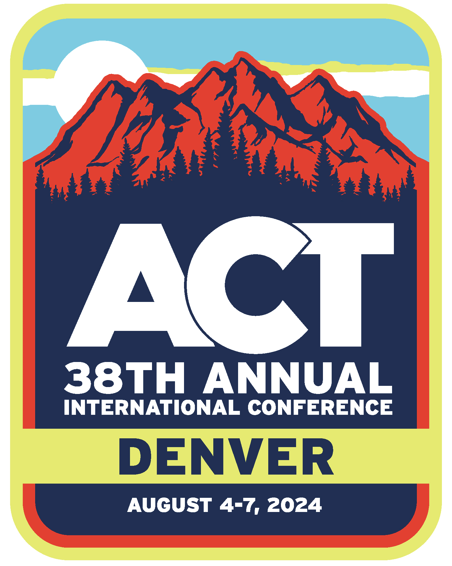
The Association for Commuter Transportation acknowledges that this land in which we hold our conference is the ancestral homeland and unceded territory of the Núuchiu (Ute), Tsistsistas (Cheyenne), and Hinono'ei (Arapaho) Peoples.
We honor and respect the people of these Nations and their ancestors, and we recognize their historical and present day cultural and spiritual connections with these lands and ecosystems.
To learn about these Tribes, their cultures, histories, languages, transportation challenges, and current efforts to advance the safe mobility of Tribal members, please visit https://www.cheyenneandarapaho-nsn.gov/transportation.
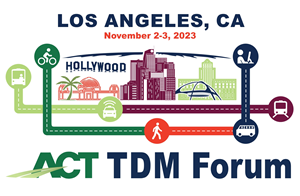
Los Angeles, California
ACT's 2024 TDM Forum
November 2023
The Association for Commuter Transportation acknowledges our presence on the land originally and still inhabited and cared for by the Gabrioleño Tongva, Fernandeño Tataviam, Serrano, Kizh, and Ventureño Chumash Peoples.
With gratitude and appreciation, we honor and pay respect to their elders and descendants ─ past, present, and emerging ─ as they continue their stewardship of these lands and waters.
We recognize that this land holds great historical, spiritual, and personal significance for its original inhabitants.
I wanted to share with you some information about L.A. County and an opportunity to learn more:
- L.A. County is home to more than 140,000 Native American people.
- 3 tribes in LA County are recognized by the State of California - More than 2,000 years before European settlers arrived, L.A. County was home to the Ventureño, Gabrieleño-Tongva and Fernandeño peoples.
- The footpaths of the Tongva through the Sepulveda Basin became the basis for the 405 Freeway.
- Yaanga, the Tongva people’s largest village in the area, was in what is now downtown Los Angeles near Union Station.
To learn more about the First Peoples of Los Angeles County, please check the links on your WHOVA APP and visit the Los Angeles City/County Native American Indian Commission website at lanaic.lacounty.gov.
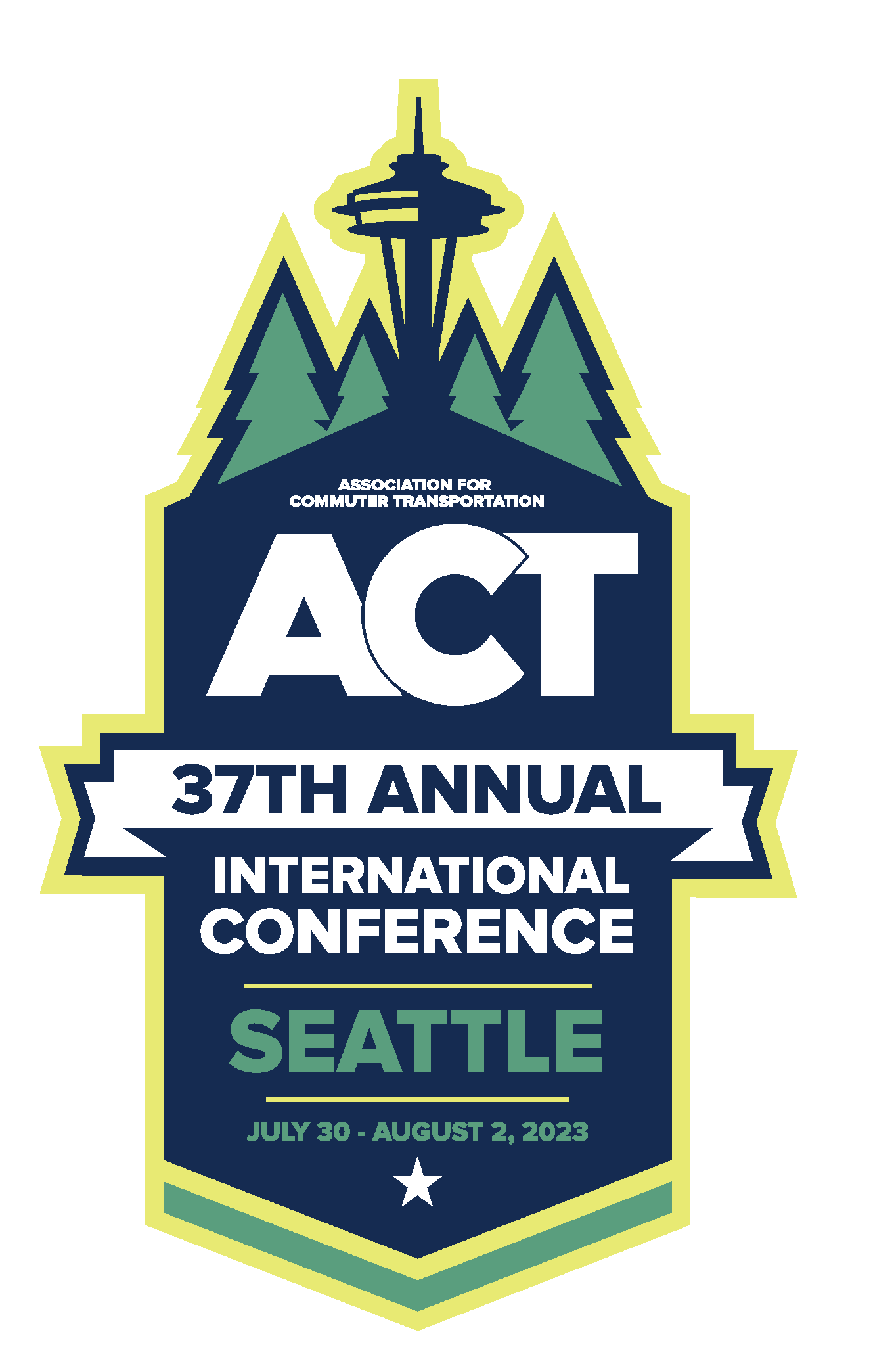
Seattle, WA
ACT's 37th Annual International Conference
July-August 2023
We acknowledge that our gathering today here in Seattle is on the traditional land of the Coast Salish Peoples, whose ancestors have resided here since time immemorial. Many Indigenous peoples thrive in this place — alive and strong. We honor and respect the enduring relationship that exists between these peoples and nations and this land. We thank them for their resilience in protecting this land and aspire to uphold our responsibilities by following their example.
The Coast Salish tribes and nations are known for their art, where NW Coast animals and spiritual beings are featured prominently. You can experience this artwork at the Burke Museum, located on the UW campus. The Burke relies on its Native American Advisory Board for guidance on policy, programming, and advocacy. Tribes and community members are the experts, while the museum prides itself on being the caretaker.
The Burke is open Tuesday - Sunday, and if you show your ORCA card, you can save $4 per ticket. If you plan to extend your stay in Seattle, admission to the museum is free this Thursday and is open until 8p.m.
While preparing for this conference, both members of the conference planning committee and the ACT DE&I Committee, connected with the several groups that work in tribal relations and environmental justice. We learned that the State of Washington and the NW Indian Fisheries Commission are committed to protecting and enhancing salmon and wildlife habitat and water quality throughout western Washington. If you would like to learn more about this work, check out the 2020 State of Our Watersheds Report.
As we learn more about our local water bodies, we realize how our own work and transportation-related projects have an impact on them.
So as you explore Seattle, I encourage you to take that same curiosity and thirst for knowledge back home with you and learn how you or your organization can partner with local tribal governments and how TDM could help support their work.
Land acknowledgments are prepared by members of ACT's DE&I Committee. Learn more about the Committee and get in touch here.
